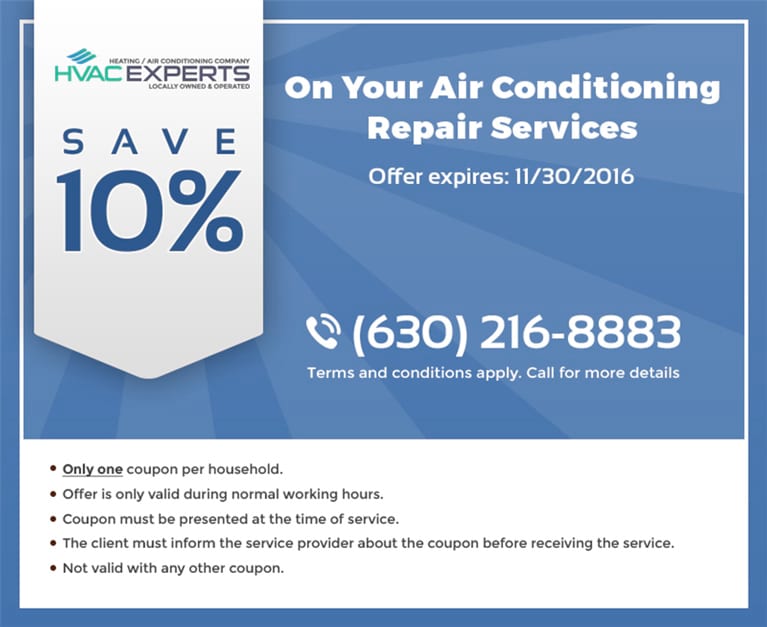HVAC Frequently Asked Questions
Do you have questions about HVAC? Find the answers to frequently asked questions below or call us at (630) 216-8883 for more information.
 Expand all
Expand all
HVAC (pronounced h-vack or spelled out) is short for Heating, Ventilation and Air Conditioning. The term HVAC is often used to describe the whole heating and cooling system, consisting of the ductwork, air filters, humidification controls and registers.
In order to prevent serious damage to your system, we suggest contacting a qualified HVAC contractor immediately if you notice any of these signs:
- Strange noises coming from your system;
- Insufficient heating/cooling;
- Heating/Air conditioning system taking longer than usual to cool down or heat up;
- An increase in your utility bills without any apparent reason.
No matter what kind of HVAC equipment you have, it should be inspected and serviced at least once a year. We recommend having your heating system checked in the Fall and your air conditioning inspected in the Spring. Annual check-ups will increase the dependability, prolong the lifespan of your equipment and help maintain a safe and healthy operation.
Good quality indoor air can improve your comfort and your health. In addition to removing allergens and pollutants from your home, air quality systems provide air purification, filtration, humidity control and improved ventilation. We highly recommend installing indoor air quality systems in your home if someone in your household suffer from asthma or allergies.
We recommend replacing HVAC equipment that is more that 12 years old for a new model to increase its efficiency. This will help you save more on energy bills and repairs, and will also increase the dependability of your HVAC equipment and the comfort of your home.
Fans draw in the air through grilles called returns, force air through ducts and into the heated or conditioned space through supply registers.
We suggest checking the filter monthly. You should check it with the thermostat in the “off” position.
Usually, there is a removable filter access door in the return air duct next to the furnace or indoor unit. This can be in your basement, garage, attic, crawl-space or utility closet. Sometimes (especially with older systems) the filter is located inside the furnace itself, next to the blower motor, and some systems have a central filter grille installed in the ceiling or in a wall. Please note that some systems may have more than one filter.
Hold the used filter up to the light.You’ll know that it’s time to change the filter when you can’t see the light through the captured dust and dirt. Keep a record of when you changed the filter for one year and then replace the filter on that basis.
Here are a few tips:
- Keep your thermostat at a constant temperature;
- Keep the blower in the “on” position. It will provide constant air movement throughout your home and will allow more even heating and cooling;
- Install screens, shades, drapes or shutters on windows that are exposed to intense sunlight. This will help to keep room temperatures at moderate levels;
- Clean and replace your air filters regularly.
Most maintenance should be performed by qualified technicians only, but to assure optimal performance, we suggest keeping the ground mounted outdoor units clear of debris, clutter and weeds, using caution with weed trimmers around the unit to prevent damage to the wiring, and keeping pets away from the unit.







 Chicago, IL
Chicago, IL



